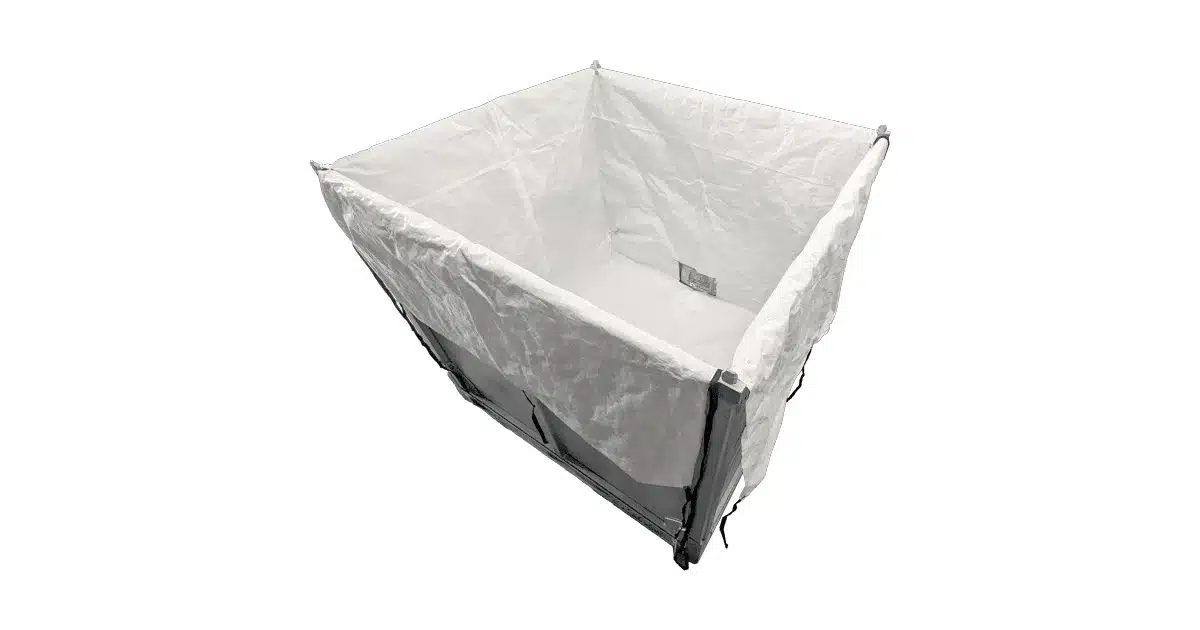When shipping or storing large volumes of liquid, contamination is one of the greatest risks businesses face. From bacteria and moisture to cross-contact with residues, even small amounts of contamination can compromise product integrity and lead to costly losses. Protective liners for Intermediate Bulk Containers (IBCs) are designed specifically to address these risks. They act as an essential safeguard within the IBC system, working in combination with other IBC packaging materials to ensure liquids arrive clean, safe, and ready for use.
Why Contamination Is a Major Concern in Bulk Liquid Shipping
Liquids are particularly vulnerable to contamination because they can easily absorb impurities from container surfaces or the surrounding environment. Without a protective barrier, chemicals from previous shipments, microscopic particles, or cleaning residues can remain inside the container and interact with the liquid. This not only reduces product quality but can also create safety hazards in industries like food, beverage, cosmetics, and chemicals.
Protective container liner solutions were developed to address this challenge by providing a sterile barrier between the liquid and the container walls. By isolating the product, liners prevent direct contact and reduce opportunities for unwanted contamination.
The Protective Role of IBC Liners
A polypropylene container liner or other specialized liner fits snugly inside the IBC, forming a sealed layer that keeps the liquid contained in a clean environment. These liners are designed for durability, offering resistance to punctures, leaks, and chemical interactions. In addition to protecting the product itself, liners simplify container reuse, since the container can be refitted with a new liner rather than undergoing extensive cleaning.
Protective liners also make it possible to handle a wide range of liquids, from food-grade syrups and oils to corrosive chemicals. This versatility is one of the reasons they are now considered a standard part of bulk liquid packaging components.
How Protective Container Liners Improve Bulk Liquid Shipping
Beyond preventing contamination, liners also improve efficiency and reduce risk in shipping operations. They minimize the chance of leaks, simplify filling and dispensing processes, and extend the usable life of IBCs. These advantages are explained further in this resource on How Protective Container Liners Improve Bulk Liquid Shipping. It highlights how liners contribute to safer logistics while supporting cost-effective and sustainable practices.
Supporting Components That Strengthen Protection
Protective liners do not work in isolation. They are supported by a range of IBC protective packaging supplies that reinforce the container system. These include:
-
IBC dunnage boards: Distribute weight evenly across the container, preventing pressure points that could damage liners.
-
IBC base pads: Cushion the bottom of the container to reduce wear during handling and transport.
-
IBC top lids and IBC container lids: Seal the container from above, preventing dirt, debris, or airborne particles from entering.
-
Open top liners: Allow for easy installation and removal, providing flexibility for different filling methods.
Together, these bulk liquid packaging components enhance the protective function of liners, ensuring containers are secure at every stage of the supply chain.
Applications Across Industries
Protective liners play a role in multiple industries where contamination must be avoided. In food and beverage, they help preserve the purity of juices, syrups, and edible oils. In the chemical industry, they keep hazardous liquids contained while preventing reactions with container surfaces. Cosmetics companies use them to ship creams, gels, and lotions without quality degradation. Even in the automotive sector, liners protect lubricants, coolants, and other sensitive fluids from exposure to contaminants.
Each of these industries depends on liners not just for compliance with safety standards, but also for maintaining customer trust and minimizing waste.
The Sustainability Benefit of Using Liners
Beyond product safety, protective container liners support sustainable operations. By reducing the need for water- and energy-intensive cleaning processes, they lower overall resource use. They also enable IBCs to be reused more effectively, extending their service life and reducing packaging waste. This makes liners an environmentally responsible choice for companies aiming to reduce their carbon footprint while improving operational efficiency.
Selecting the Right Liner and Packaging Materials
Choosing the best liner for a particular liquid requires consideration of the product’s chemical properties, handling requirements, and storage conditions. A polypropylene container liner may be best suited for certain food or chemical applications, while other materials may work better for specialized fluids. Accessories such as dunnage boards, base pads, and lids should also be selected to match the operational environment.
For businesses that need guidance, the Comprehensive Guide To IBC Packaging Materials And Components provides valuable information on how to create the right system for specific applications.
Why Work With Innovative Liner Solutions
Protecting bulk liquid shipments requires more than just a container. It requires a system of liners, accessories, and packaging supplies that are engineered to work together. Innovative Liner Solutions offers a complete range of protective container liner options and bulk liquid packaging components designed for multiple industries. Their expertise ensures that each customer receives solutions tailored to their shipping and storage needs, backed by a focus on safety, efficiency, and sustainability.
Conclusion
Protective liners are essential for preventing contamination in bulk liquid shipping. By forming a barrier between liquids and container walls, they protect products from impurities while simplifying reuse and supporting sustainable practices. When combined with IBC dunnage boards, base pads, top lids, and other packaging components, liners create a secure and reliable system for transporting valuable liquids across industries.
For more information on selecting the right protective liners and packaging materials, contact Innovative Liner Solutions today at (815) 963-9525.


